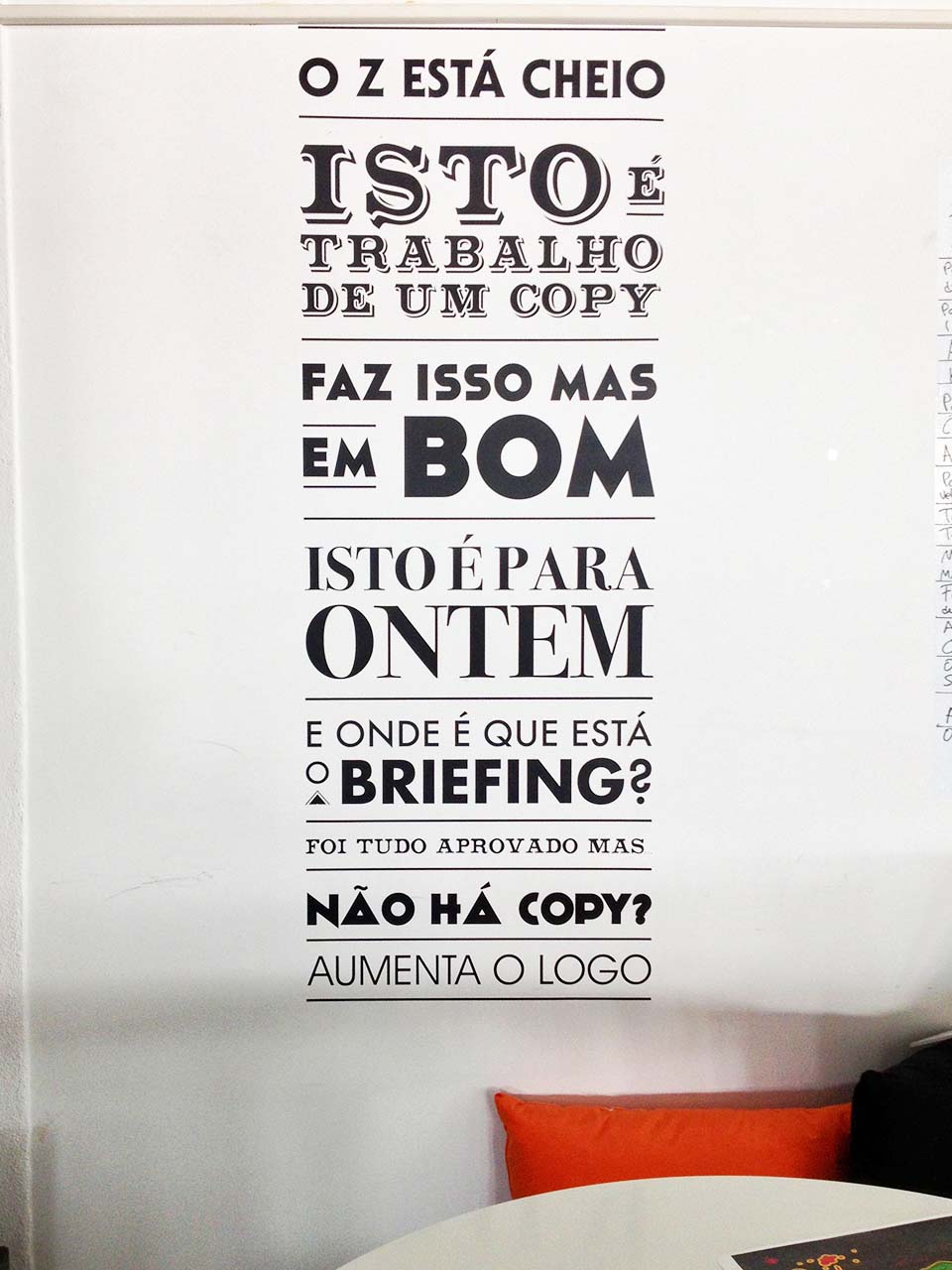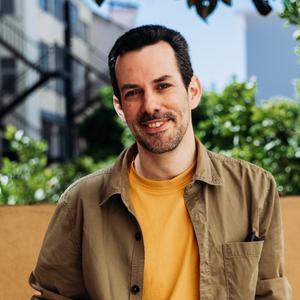- We've got a new project and I think you should come over for a little chat.
When this phone call happened, it was 2011 and it must have been July. At the time I was working on deliveries and had a few clients for whom I did social media consultancy, I wasn’t really a community manager because I just pointed the way and accompanied the projects. A while earlier, for example, I had worked on the Esporão blog. But between life’s stumbling blocks and my lack of experience, I was still learning everything.
I’d already worked for communication agencies where things didn’t go so well. I came from an academic background, having taught Public Relations online in Cape Verde, and I didn’t fit in at the agencies where we were all still figuring out how to work in a digital landscape.
I wasn’t in the best state of my life. Frustrated and depressed by the difficulty of getting a job in Communications. I kept in touch with small projects that came up and wrote this blog as a way of showing my competence in the area. “Drink your own poison.”
At that time there was no specific training for digital communication. Universities called in as many specialists as they could to teach modules outside their bachelor’s and master’s degrees. On the other side, independent schools and training centers were only able to teach how to operate the tools.
A few days after that phone call, I was parking the delivery van in front of Fullsix to have a little chat with Armando Alves. We already knew each other from this blog. We had also crossed paths when I helped organize the Social and Human Ideas For Technology (SHiFT) conference and some meet-ups.
We talked for almost 3 years and I learned a lot during my time at Fullsix. I was lucky enough to work with some of the biggest brands in Portugal and to be involved in strategy proposals for new clients.

At the agency we learned from each other and outside the agency I followed the blogs of agencies and professionals with a good digital presence. The team was small but organized and had a solid working method. Armando insisted on reports focused on what mattered to the client and without vanity metrics.
Each community manager made their own reports and this gave us a clearer view of what worked best. With this, the team achieved a consistency of results that didn’t go unnoticed.
When the agency became too small, we moved into different fields, always with the aim of diversifying our skills.
- User Experience
- Analytics
- Paid Media
- Copywriting
- Branding
- …
Working in digital communication requires knowing one of its disciplines very well, and never forgetting that there are others that need to be coordinated. We are better at our profession if we know a little about each discipline.
A lot has changed since the Wild West I met in 2006. There is training at all levels, from undergraduate to MBA. We know what works and how to have a working method. What hasn’t changed is that there are still less serious professionals who promise the world. This is a scourge for all areas, not just ours.
There are also professionals on the client side who are missing fundamental concepts of what communication is, whether digital or classic. And on the agency side, there are even people who feed off their clients’ ignorance in order to sell more services or to embellish results.
There is a solution to this lack of knowledge, but we need to be open to it. Unfortunately, there are communications offices that are stuck in the 30s and 40s and think that all communication is propaganda. I give all my admiration to the professionals who are trying to evangelize these lost souls.
**And what can I say to someone who wants to work in communications strategy?
No matter how much training there is, it will never replace experience and that’s ungrateful. I say thankless because you’re lucky enough to be able to work for brands with dynamic communication and have colleagues you can learn from.
It’s unfortunate because not all training is equal and access to opportunities doesn’t just depend on merit. And it’s unfortunate because it’s essential to work with people who can convey the sensitivity needed to understand the various audiences and help us hone our intuition.
Every social network has communities with their own culture, values and rituals. And as communications professionals we need to be able to observe and identify these elements. You need to be an anthropologist to know how to choose channels, content and formats.
The greatest ingratitude is that today the job market is flooded with professionals who, after just a few months’ training, think they’re ready to work in any context or on any brand. They’re not bad people, but they’ve been injected with a dose of synthetic confidence by someone who just wants to sell more courses.
This crowd generates two types of noise. The first makes it difficult to find competent professionals, and the second fills people’s heads with assumptions and superstitions about how algorithms and social networks work.
Of course, it’s not all doom and gloom in the world of communication in Portugal.
Universities have improved their curricula, agencies have improved their working methods and some clients are more demanding. What we need now is a more direct path from academic training to participation in the job market. Ideally, with the necessary certifications so that those coming from other areas can be confident that they have obtained the necessary knowledge and skills.
The photo illustrating this article is my desk when I was at Fullsix. That computer was my only working tool. The typography was what was on the walls of the agency and reflected the conversation of the open space. More than 10 years have passed, but I bet the same and similar phrases still echo through the corridors of the agencies.

